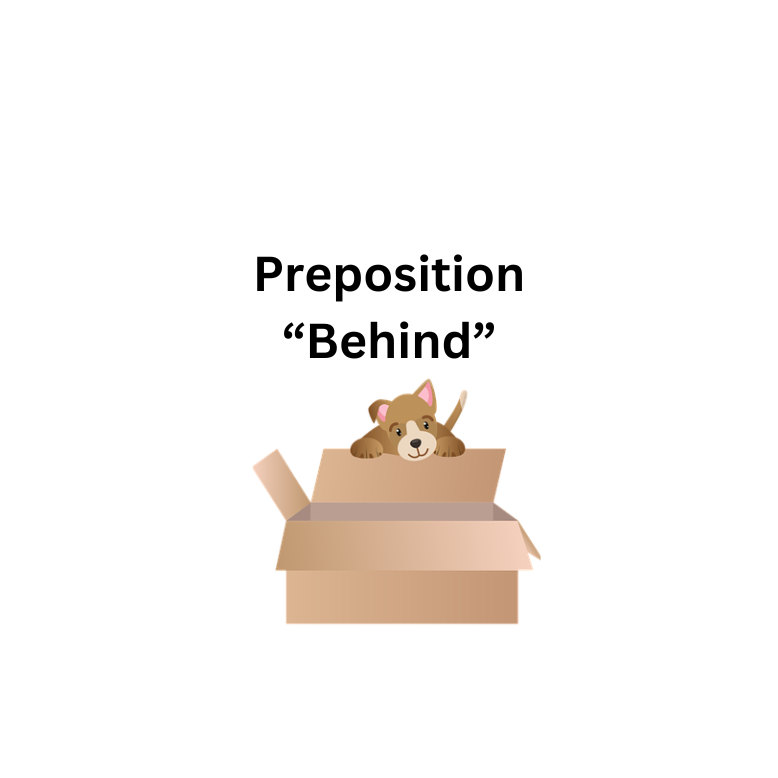Preposition – “Behind”

Preposition – “Behind”
Preposition behind with the meaning – at and to the back of something or someone:
Here are some examples of the preposition behind used to indicate the position at and to the back of something or someone:
She hid behind the tree to avoid being seen.
The car is parked behind the building.
The cat is hiding behind the couch.
Please stand behind the yellow line while waiting for the train.
The children are playing hide and seek, and one of them is behind the shed.
The backpack is behind the door.
The teacher was standing behind the podium during the lecture.
The restaurant has a beautiful garden seating area behind the main dining room.
I found my keys behind the sofa cushions.
The sun sets behind the mountains, creating a stunning view.
In each of these sentences, behind is used to describe the position of something or someone in relation to another object or location, indicating that it is at the back of or to the rear of that object or location.
Here are some common word combinations and phrases that use the preposition behind:
Behind the scenes: Refers to activities or events that occur privately or out of the public view, often in the production of a play, movie, or other entertainment.
Behind closed doors: Indicates that something is happening privately, away from public scrutiny.
Leave someone behind: To not include or forget someone when departing or moving forward, physically or metaphorically.
Fall behind: To fail to keep up with something or someone, often in terms of progress or work.
Get behind: To offer support or endorse something or someone.
Behind schedule: To be late or behind the planned timeline for a project or task.
Left behind: Something or someone that was not taken or moved when others departed.
Look behind you: A warning to be aware of what is happening or approaching from the rear.
Pull someone aside/behind: To take someone to a private location for a conversation or discussion.
Stay behind: To choose or be required to remain in a place while others depart.
Hide behind: To use something or someone as a shield or excuse to avoid responsibility or exposure.
Behind the wheel: Refers to driving a vehicle.
Leave something behind: To forget or accidentally leave an item in a place when departing.
Behind bars: Refers to being in prison or in police custody.
Behind the counter: Indicates the area where products or services are provided in a store or establishment.
Fall behind on payments: To not make payments on time, leading to debt or financial issues.
Stand behind a decision: To support or defend a choice or action.
Sneak up from behind: To approach someone quietly and unexpectedly from the rear.
Fall behind in class: To have difficulty keeping up with the material being taught in school.
Close behind: Refers to being very near in proximity or time.
Preposition – “Among (Amongst)”
The Preposition place in sentences